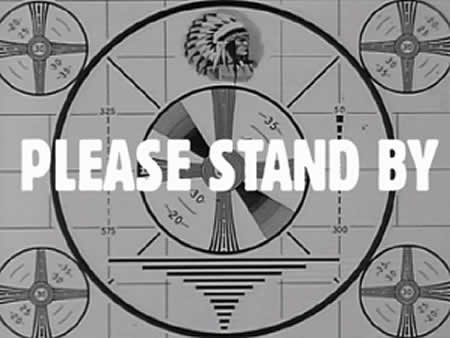First off a clarifying statement: I do not have any affiliation, investment or personal stake in Google. I do not even have an adsense account. I am a user of their services like gmail, apps and search. I am a bit concerned about their size and influence but no more or less than other companies like Microsoft, Apple Intel etc.
This post is not at all intended to come to the defense of Google, (like they need my help), it is however intended to point out why I believe they are being inaccurately attacked in the traditional media. Specifically as it pertains to their newest foray into what is described as Google TV.
When the giants of traditional media come under attack, the first response is denial. I believe it really is because of a sense of invulnerability. Big Media has controlled distribution and content for so long, they cannot even fathom that they are losing relevance. Their attitude suggests that they are collectively omnipotent. Take the recording industry for example: Technology built a digital distribution network of 25 million users all connected by a common application. Napster was growing at 2 million users per month and showed no signs of slowing down, when the recording industry brought their financial might down on the fledgling company of music sharing geeks. Killing Napster was supposed to return control to the recording industry. It never did. The only company that seemed to grasp the potential of Napster was Bertelsmann as the service transitioned into a pay for use service. However the bloom was off the rose, the time to leverage Napster was 8 - 12 months prior. By utilizing P2P distribution and encouraging users to download the latest hit song in the highest quality form possible, the industry could have charged a flat fee to access content on Napster. At the time every eleven year old girl would have insisted that they have the new Britney Spears single and paying $5 per month even as a one off, would have netted $30mm in a single month. The opportunity was not to be and is now relegated to one of the great industry blunders, along with the Edsel, New Coke and the IBM-PC operating system
With the turmoil surrounding music file sharing now ancient history and iTunes owning the legitimate space due to the inability of the recording industry to recognize the future, let's turn our attention to the "boob-tube" and it's evolution to Google.
The first real attempt to converge TV as we knew it and the Internet or as it was referred to in 1995 as the "world wide web" was a horrible user experience called WebTV. Ultimately bought out by Microsoft, this box did sell but the joke was on those who tried to use the NTSC 4:3 television screen to view what was written for the computer VGA monitor. Great idea wrong time and technically it came up way short.
As media on the Internet quickly realized the masses were not ready to forgo the passive viewing experience requiring only a handheld remote, for a blurry small image that needed media players and special software not to mention a keyboard and mouse for the most part. That does not even take into consideration that no one was willing to pay for content and advertisers did not yet understand the metrics involved around the new model. So online media went into a dark age for almost ten years. It was to re-emerge however, leaner and meaner. Now with bandwidth and processing power readily available a renaissance had occurred. YouTube, Hulu, and Bit-torrents became the video equivalent to Napster. Some of it legal and some - not so much. What was clearly evident in this second waive was the consumer appetite for content everywhere. TiVo changed TV viewing and interfaced couch potatoes with digital technology as seamlessly as the handheld remote once had. Digital media was the Television industry's new killer app and once again they were too arrogant to recognize the opportunity.
Some might say that Television studios have embraced the new digital distribution technology and Hulu is evidence of that. While it is certainly a more progressive step in the right direction than their Recording Industry counterparts, it is still a territorial defense tactic and not a truly ubiquitous methodology. The big media studios need to get out of their own way. They spend more time trying to prevent theft then they do getting content onto the three screens their viewers have now fully embraced. HDTV sets, Desktop computers and Mobile devices are all equally important.
If history proves anything the big media companies are too close to their own offerings to be impartial. They are myopic and have missed miserably on most if not all of their ventures in tech AOL-Time Warner and MySpace ala NewsCorp to name a few. As Apple ipodded, iphoned and now ipads us into the next waive of media accessibility and usage, Google too has a strategy. World domination takes time however and Google is making moves slowly and seemingly unobtrusively. Firstly, they needed their own operating system. Then a web browser. While they were at it how about a mobile phone or maybe a better idea would be to have their mobile operating system on other manufacturers devices. So far so good; OS, browser, mobile, what is next? How about video? Now that Google has a compression codec to send digital media over the Internet all that is needed is an open source language to make it zoom, (HTML5 - video tag).
As has been Google's strategy, they do not shove their solution down one's throat. As witnessed with their mobile phone offering, Google is quiet prepared to place a product in the market and let other companies build in and on and around it. Hence the latest device Google TV.
With Google's resources and a successful little video site called YouTube in their stable, making a TV device only made sense but this is not about video snacking and Justin Beiber wannabes on YouTube or the video indexing capabilities within their search engine. This is about the final step toward full convergence. This is what WebTV envisioned fifteen years ago and what every streaming media pioneer dreamed of since 1995. This is now about access to the most coveted space of all, the living room. Remote in hand passively viewing the billion channel universe.
So what have we learned from history? Big media companies first deny the existence of a threat, then they throw billions of dollars at defensive tactics. Next they buy the technology and attempt to apply antiquated strategies on a model that no longer exists. Finally they draw upon their biggest weapon, that is their own infrastructure. They use the reach and puppets on the payroll to create a diversion.
Here is where we are at as of today. Google TV launches October 2010, quickly NBC Universal, Fox and Disney block access to Hulu, followed by ABC and CBS, then Fox. Viacom announced today that it too is blocking access on the Google TV box. "Would the last one left please turn out the light?" Now everybody write about it. Talk about the price point being too high. Tell the public that the device doesn't really work. Reiterate that unless it comes from the big media system it is not really TV. Blah blah blah.
Big Media's Jugular: No one really cares about the regurgitated crap that appears on the dial. Reality TV? The reality is, they have run out of ideas. The more that networks produce the pathetic blather being peddled as must see TV, the more people are jumping online. If I am going to watch crap, I'll watch it from a web site, I'll watch it while I am riding the bus. I'll stream it to my flat panel TV when I want it. Time means nothing it is all about being digitally available. The big media companies are going to do exactly what the recording industry did. They are going to Napsterize Google TV. Only this isn't Napster and we are not talking only about college kids. This is everybody now!
Google does not need to win this battle. They will simply sit back and let the media giants collapse in on themselves.
Here is where the war is lost: Content is king - this is a truism. However content now comes in billions of shapes and sizes. "There is an audience for that". The next great movie, TV series, game show, talent contest can now just as easily be delivered by Internet and to any screen (TV, desktop, mobile). Big Media will not stop this, they are so completely and utterly out of touch with reality, that they will repeat the same mistakes made only a decade ago. As Big Media flexes it's muscles and bangs it's chest, Google will wait patiently. They do not need to prove anything.
After all, it was not that long ago that we believed no company could displace Yahoo, Go.com, Altavista, Excite, Lycos and other familiar names like these. Ultimately we all began to try this simple page to see what kind of search results we would get. Soon we were no longer searching, we "Googled".
While Big Media in all their arrogance believe they are limiting opportunity, Google has been distributing an operating system. Android is now on more new mobile phones than Blackberry. Android is being embedded on chips in new HDTV monitors. While Big media is relying on the TV remote to be the old trusted friend and the only interface of choice, the Chrome browser is steadily replacing Internet Explorer as the default. As TV networks fumble to integrate Tweets and encourage you click "Like", MS Outlook is being swapped out for Google Apps. Blockbuster files for Chapter 11 bankruptcy protection while WEbM and HTML5 is in the hands of the geeks that brought us YouTube, Facebook, Twitter, Skype, Bit-torrents and formerly Napster. New video production and distribution methods are in test labs as we speak, these will appear on devices like Apple TV, Roku and WD TV. Viewers have been trained to use devices like TiVo. Now software like Boxee is becoming common place. Google TV has a marketplace that is certainly getting warmed up, so there is no need for concern on their part and they can certainly afford to wait.
We are seeing the last days of Big Media. The power is shifting to the masses and that which was controlled by a few will now be produced by millions. Not only does this not fit the Big Media model, they have absolutely no way of implementing infrastructure to take advantage of it. Big Media blew it and so it goes, we evolve to the new model.
In the not too distant future we will all sit back and watch some Google.





No comments:
Post a Comment